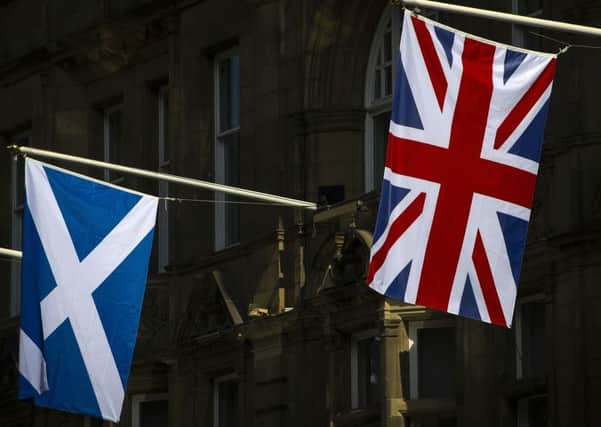Shetlanders show true colours by waving the flag for democracy – Christine Jardine


I had been intending to spend some of my holiday ‘doing’ politics.
There was, after all, a hotly contested Scottish parliamentary by-election on the islands that I wanted to be part of, but having to respond to potentially the biggest constitutional crisis in living memory had not been on my radar.
Advertisement
Hide AdAdvertisement
Hide AdYet there I was. In the midst of some of Scotland’s most breathtakingly beautiful scenery, amongst communities who are closer geographically to Oslo than to London, I was in constant communication with colleagues about how we protect the very democratic process being played out around me.
It seemed that even here there was no escape from the flag waving, nationalism which has plunged us into this mess.
And I don’t just mean Boris Johnson and his brand of Brexiteers.
One of the first things that hit me on my arrival were the flags.
Everywhere.
I’ve often been to the Northern Isles before and I know how proud the communities in both Orkney and Shetland rightly are of their individual colours. But this was different. This was not the islanders.
This was a political party wrapping itself in local symbolism for its own ends. It was on their cars, posters and leaflets.
For me over the past week the attempted appropriation of the flag of Shetland by the SNP has yelled out as a metaphor for the nationalist introversion which is threatening to shut down our democracy.
The currency of modern Scottish politics seems to be that you have to choose which flag in which to wrap yourself. Saltire or Union?
To which identity are you going to confine yourself?
Advertisement
Hide AdAdvertisement
Hide AdCharles Kennedy, as in so much about our politics, had the answer.
Whenever he was asked he insisted that he was a Highlander, a Scot, British and a European, and that each layer of that identity was equally valuable to him.
They reinforce each other and make the individual at their heart stronger. This week, on my phone in the centre of Lerwick, being brought up to date on the national crisis, surrounded by the paraphernalia of Scottish nationalism, I felt yet again, that the fabric of my interwoven identities was under threat.
It has been constant since 2014.
But this time it’s not just my identity but our democratic traditions too.
The liberalism, tolerance and adherence to constitutional precedent which we have lived by for centuries is being challenged at the centre.
The announcement that parliament will be suspended, our democracy is being shut down to allow the UK Government to choose how and when we leave the EU, deal or no deal, without scrutiny shook me to the core.
As a history and politics undergraduate at Glasgow University I often wondered how contemporary MPs reflected on their role in issues of their time like Suez, the Suffragettes or the miners’ strike.
Now I am finding out for myself.
Even as the tiniest cog in that vast machinery of 650 elected members that is the House of Commons, I am aware of my responsibility.
Advertisement
Hide AdAdvertisement
Hide AdI have spent much of this week talking to others, reaching out to different parties, supporting those trying to build a consensus.
And just as we thought we were getting our heads around the implications of this authoritarian power grab, there was another surprise.
Scottish Conservative leader Ruth Davidson, a woman who has taken her party from threatened obscurity to challenging for power at Holyrood is taking a step back.
The loss of that one individual’s input seems, right now, at this critical moment, huge.
What will happen next to her party, and how her 13 MPs at Westminster will respond to their leader shutting down parliament, is for others to decide.
For many people it must seems that it is yet more evidence of crumbling foundations.
I am not one of them.
This week has undoubtedly been one of the most tumultuous and tortuous in modern British political history.
The next few weeks promise to bring even more drama, power plays and stress.
Advertisement
Hide AdAdvertisement
Hide AdBut at the centre of it all the people on Shetland did the one thing which, in the final analysis, may provide that answer we are all looking for.
They went out and voted in astonishing numbers to decide which person had the confidence of the greatest number of islanders to be their representative.
While others argued about democratic rights, they exercised theirs.
The majority turned their back on the flag-waving, populism and identity politics.
They chose Beatrice Wishart of the Scottish Liberal Democrats. The flag of Shetland belongs to all the islanders in the same way as the Saltire represents each and every political expression in Scotland, every locality and every individual.
It is my flag and yours.
But it is also not all that we are.
It should unite us. Not divide.